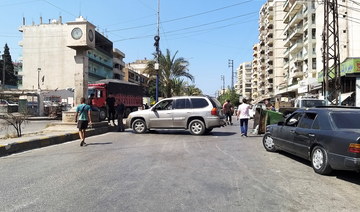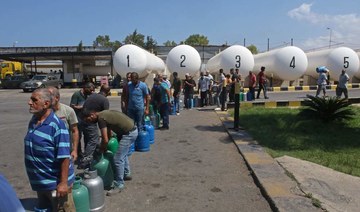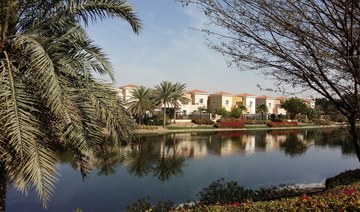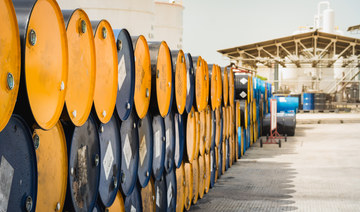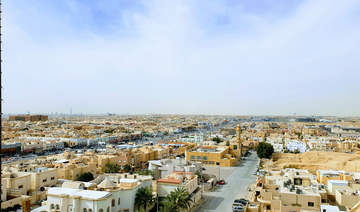BEIRUT: The Lebanese government clashed with the central bank on Thursday over its move to end fuel subsidies that have drained the currency reserves, saying prices must not change and subsidies must continue until measures are in place to help the poor.
With the government and central bank adopting conflicting positions, petroleum importers demanded clarification, with one warning of huge fuel shortages due to inadequate supply.
The loss of fuel subsidies would open a new phase in the financial crisis that has sunk the value of Lebanon’s currency by more than 90 percent since 2019 and thrown more than half the population into poverty.
Since the crisis began, the central bank has been effectively subsidizing fuel by using its dollar reserves to finance imports at exchange rates well below the rates on the parallel market.
The central bank defended its decision to provide dollars at market rates, saying it had told the government a year ago that legislation would be needed to dip into the mandatory reserve, a portion of deposits that must be preserved by law.
The public dispute at the very top of the Lebanese state captured the failure of the ruling elite to set policies to get the country out of its worst crisis since the 1975-90 civil war, even as supplies of fuel and medicine have run out.
Petroleum importers noted that while the government said petroleum products must continue to be sold at prices based on a subsidized exchange rate, the central bank would now only open credit lines for them to import at the market rate.
The same exchange rate must apply for buying and selling, they said. “We are waiting for them to sort it out, to communicate what they want to do,” Maroun Chammas, a member of The Association of Petroleum Importing Companies, said.
The central bank’s decision triggered scattered protests, though fuel prices were unchanged on Thursday and many petrol stations were shut.
After an emergency meeting of the caretaker cabinet, the government affirmed the need to continue subsidies, and that steps to rationalize them should only begin when prepaid cash cards for the poor, approved by parliament in June, were rolled out.
It also said there must be no change in the prices of refined petroleum products.
The government statement did not spell out how this would be achieved if the central bank was going to stop providing dollars at subsidized exchange rates.
The government accused governor Riad Salameh of acting unilaterally.
“They made us lose everything in Lebanon: no fuel, no electricity, no water, nothing. House rents now cost millions. Where should we go from here?” said Hussein Ibrahim, who was protesting against the decision in Sidon.
SUMMONED TO PALACE
President Michel Aoun summoned Salameh to the presidential palace for a meeting at which the governor refused to back down, saying use of the mandatory reserve required legislation, a ministerial source said.
The source said the idea of draft legislation was discussed at the cabinet meeting and the government would work on a draft.
“The country cannot bear the dire consequences of this type of decision,” Diab said at the start of the cabinet meeting.
“Its damages are much greater than the gains of protecting the mandatory reserves in the central bank” because it would take the country into the unknown.
MPs from the powerful Shiite Muslim group Hezbollah rejected Salameh’s move, echoing the view that the prepaid cards must be rolled out before any action on subsidies.
The fuel subsidy has been costing about $3 billion a year.
The central bank said that while it had spent more than $800 million on fuel in the last month and the bill for medicines had multiplied, those goods were still absent from the open market, and being sold at prices that exceed their value.
Tempers have frayed with motorists queuing for hours for petrol and often not being able to fill up. Three men died in altercations on Monday related to scarce fuel supplies.
The central bank said on Wednesday it would offer credit lines for fuel imports at market rather than subsidized exchange rates.
Unsubsidized, the price of 95-octane gasoline was projected at more than four times its previous price in a schedule reported by a broadcaster.
Most recently, the central bank had been extending credit for fuel imports at a rate of 3,900 pounds to the dollar, compared with a parallel market rate of more than 20,000 pounds.
The reserves have sunk from more than $40 billion in 2016 to $15 billion in March.
Lebanese government, central bank clash over fuel subsidies
https://arab.news/2tmhr
Lebanese government, central bank clash over fuel subsidies
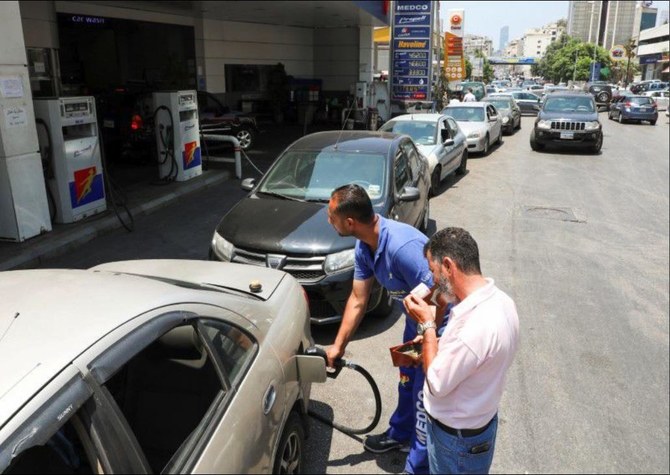
- The government attacked the central bank over the decision, calling it a unilateral move that would have serious consequences
- The decision triggered scattered protests, though fuel prices were unchanged on Thursday and many petrol stations shut
Dubai’s high-end property sales rise on overseas demand
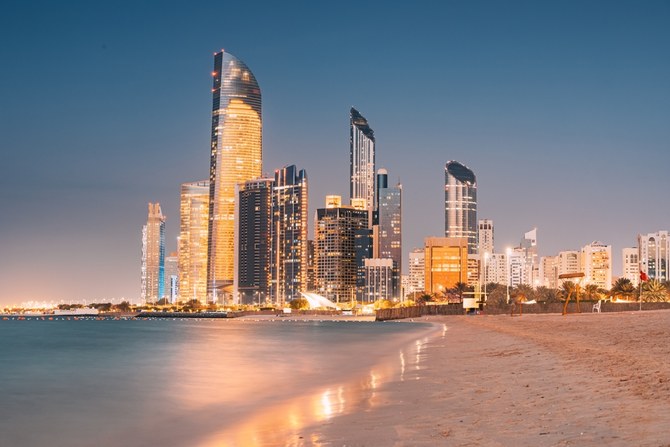
DUBAI: Sales of homes in Dubai worth $10 million or more rose 6 percent in the first quarter versus last year, an industry report showed on Tuesday, as demand from the international ultra-rich for homes in the emirate showed little sign of abating, according to Reuters.
A total of 105 homes worth an overall $1.73 billion were sold from January to March, up from around $1.6 billion a year earlier, according to property consultancy Knight Frank.
Activity was dominated by cash buyers, with palm tree-shaped artificial island Palm Jumeirah the most sought-after area, accounting for 36.3 percent of sales by total value, followed by Jumeirah Bay Island and Dubai Hills Estate.
Home to the world’s tallest tower, the UAE’s Dubai is seeking to grow its economy through tourism, building a local financial center and by attracting foreign capital, including into property.
The recent property boom has shown signs of fizzling out, however, with developers, investors and brokers worrying whether a painful correction akin to the slump that rocked the emirate in 2008 can be avoided.
Last year, Dubai ranked first globally for number of home sales above $10 million, selling nearly 80 percent more such properties than second-placed London, according to Knight Frank.
The city also bucked the trend of falling luxury prices seen in cities like London and New York last year, posting double-digit gains, Knight Frank said in February.
“The level of deal activity in Dubai continues to strengthen, particularly at the top end of the market, where the near constant stream of international high-net-worth-individuals vying for the city’s most expensive homes persists,” said Faisal Durrani, Knight Frank’s head of research for Middle East and Africa.
Durrani told Reuters Dubai was aided by the relative affordability of its luxury homes, where well-heeled buyers can purchase about 980 sq. feet of residential space for $1 million, “about three or four times more than you would get in most major global gateway cities.”
The strong demand suggests many international investors are acquiring Dubai property for second homes rather than “constant buying to flip,” he said, referring to the past practice of buying in order to sell to others quickly for more money.
Oil Update — prices rise on China growth, Middle East tensions
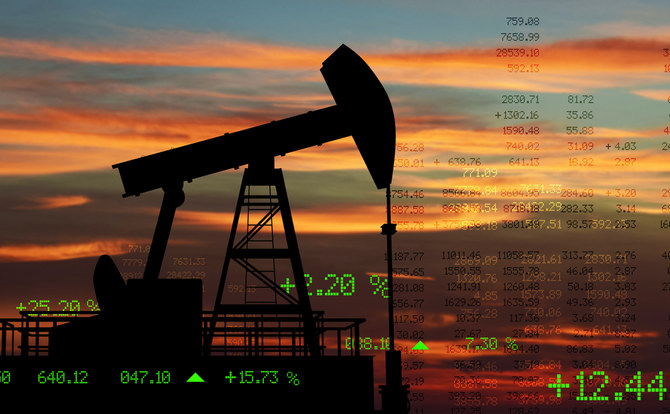
SINGAPORE: Oil prices rose on Tuesday after data showed China's economy grew faster than expected, while heightened tensions in the Middle East also kept markets on edge after Israel said it would respond to Iran’s weekend missile and drone attack, according to Reuters.
Brent futures for June delivery rose 20 cents, or 0.2 percent, to $90.30 a barrel by 10:57 a.m. Saudi time. US crude futures for May delivery rose 21 cents, or 0.3 percent, to $85.62 a barrel.
Earlier in the day oil prices had risen nearly 1 percent following the release of official data from China showing gross domestic product in the world’s biggest oil importer grew 5.3 percent in the first quarter, year-on-year, comfortably beating analysts’ expectations.
However, both benchmarks pared some gains as a raft of other Chinese indicators including real estate investment, retail sales and industrial output showed demand remained weak in the face of a protracted property crisis.
Oil prices soared last week to the highest levels since October, but fell on Monday after Iran’s weekend attack on Israel proved to be less damaging than anticipated, easing concerns of a quickly intensifying conflict that could displace crude barrels.
“Israel’s response will determine whether the escalation ends or continues. The conflict could still be contained to Israel, Iran and its proxies, with possible involvement of the US,” analysts at ANZ Research said in a note on Tuesday.
Israel’s Prime Minister Benjamin Netanyahu on Monday summoned his war cabinet for the second time in less than 24 hours to weigh how to react to Iran’s first-ever direct attack on Israel.
Iran produces more than 3 million barrels per day of crude oil as a major producer within the Organization of the Petroleum Exporting Countries.
World Bank raises Saudi Arabia’s 2025 GDP growth forecast to 5.9%
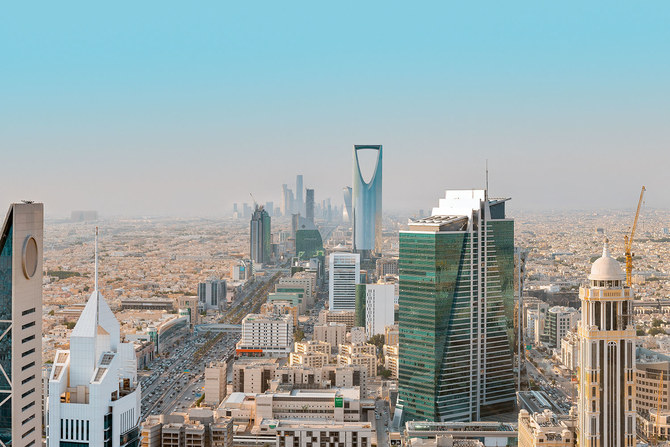
RIYADH: The World Bank has raised its expectations for Saudi Arabia’s economic growth to 5.9 percent in 2025 from 4.2 percent predicted earlier in January.
In its latest report the bank, however, revised its 2024 forecast for the Kingdom’s gross domestic product growth downward to 2.5 percent from an earlier forecast of 4.1 percent.
Concurrently, the overall GDP growth forecast for Gulf Cooperation Council countries in 2024 has been reduced to 2.8 percent, down from 3.6 percent, while the 2025 forecast has been revised to 4.7 percent from 3.8 percent.
The report also adjusted the UAE’s GDP growth forecast to 3.9 percent for 2024, up from the previously projected 3.7 percent, with a further rise to 4.1 percent in 2025, from 3.8 percent.
Kuwait’s economy is expected to expand by 2.8 percent in 2024 and increase further to 3.1 percent in 2025.
Similarly, Bahrain’s economy is likely to grow by 3.5 percent in 2024 and 3.3 percent in 2025, marking an increase from January’s projections.
Meanwhile, Qatar’s economy saw a downward revision for its 2024 forecast from 2.5 percent to 2.1 percent but an upward revision for 2025 from 3.1 percent to 3.2 percent.
Oman’s economy projections for 2024 and 2025 saw a marginal increase of 0.1 percent since the January forecast.
This adjustment reflects the broader economic trends where the surge in oil prices following Russia’s invasion of Ukraine in 2022 bolstered oil-exporting economies in the Middle East and North Africa.
In contrast, economic growth in non-oil-exporting nations — including MENA oil importers like Djibouti, Jordan, Morocco, Tunisia, and the West Bank and Gaza — has slowed.
By 2024, the growth disparity between GCC oil exporters and developing oil importers is expected to narrow to just 0.9 percentage points, marking a significant shift from 2022 when GCC countries grew 5.6 percentage points faster, the report stated.
“Developing oil exporters will grow 2.8 percent in 2024, down from 3.1 percent in 2023 while growth in developing oil importers is forecasted to decrease to 2.5 percent in 2024, down from 3.1 percent in 2023,” the report stated.
Overall, the MENA region is expected to achieve a growth rate of 2.7 percent in 2024, which aligns with pre-COVID levels but still trails the global average.
While other emerging markets and developing economies are also projected to remain below pre-pandemic growth rates, they are expected to surpass the MENA region by 1.2 percentage points in 2024.
GCC oil companies’ capex to grow by 5% to reach $115bn in 2024
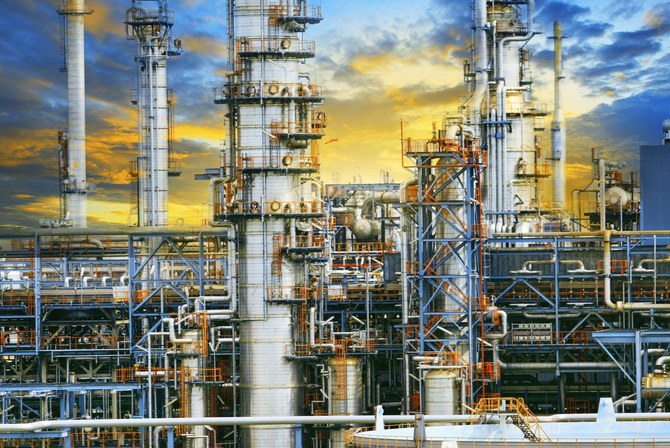
RIYADH: The capital expenditures of national oil companies in the Gulf Cooperation Council are likely to grow by 5 percent in 2024 as compared to the previous year and are expected to reach $115 billion, according to a report.
The analysis by S&P’s Global Ratings, however, does not take into account the potential surge in spending from recent expansion plans such as the North Field West Project in Qatar, which it said could significantly boost expenditures.
The report highlighted that while the growth in capital expenditure is modest, Saudi Arabia’s planned output cuts in line with the current policy of the Organization of the Petroleum Exporting Countries and its allies, known as OPEC+, is likely to decrease demand for drilling platforms, operating ratios, average daily production rates, and profitability among regional drilling companies, especially in the Kingdom.
“We stress-tested the effect of a hypothetical 15-20 percent loss of total rig demand in the region on GCC drillers, and we estimate that the debt to EBITDA (Earnings Before Interest, Taxes, Depreciation, and Amortization) of rated and publicly listed drillers based in GCC countries could increase by about 1x on average,” S&P Global Ratings Credit analyst Rawan Oueidat said.
“At this point, we think that drillers’ rating headroom could shrink, but we don’t expect any short-term rating pressure,” Oueidat added.
The agency also raised concerns about the future of capital expenditure in other oil and gas-producing countries of the GCC, following Saudi Aramco’s decision to suspend its plan to increase the Kingdom’s maximum production capacity.
Despite these concerns, the total oil capital expenditure in the region is expected to remain relatively high due to the ongoing expansion plans in Qatar and the UAE.
However, the pace and magnitude of spending are expected to impact oilfield service companies and the entire value chain, particularly drilling companies whose business models heavily rely on corporate capital expenditures.
The UAE’s Abu Dhabi National Oil Co. is set to increase its oil production capacity to 5 million barrels per day by 2027, up from 4 million bpd as of February 2024, according to the US Energy Information Administration.
Meanwhile, Qatar is aiming to boost its liquefied natural gas production capacity to 142 million tonnes annually by 2030 from the current output of 77 million tonnes.
The report predicted oil prices to average $85 per barrel for the remainder of 2024 and $80 per barrel the following year.
It also suggested that geopolitical tensions and planned production cuts by OPEC+ will support prices and enhance the cash flows of oil companies across the Gulf region.
Saudi housing program Sakani benefits over 32,000 families in Q1

RIYADH: As many as 32,343 Saudi families benefitted from Sakani’s housing options during the first quarter of 2024, marking an annual 15 percent increase.
In collaboration with the Real Estate Development Fund and financial institutions, the program provides a variety of housing support packages to encourage first-time house buyers, including non-refundable financial assistance of SR100,000 ($26,659) or SR150,000.
The number of the Kingdom’s households that purchased their first homes reached 25,391 in the first three months of the year, reflecting the objective of Sakani to offer a variety of residential options and financial solutions.
Founded in 2017 by the Saudi Ministry of Housing and the Real Estate Development Fund, the program aims to increase the proportion of families that own a home in the Kingdom to 70 percent by 2030, in line with the economic diversification strategy Vision 2030.
Figures from Sakani showed that the number of beneficiary households reached 12,184 in March, with 9,381 Saudi families obtaining their first residence.
In January, Sakani announced that more than 100,000 Saudi families benefited from the initiative in 2023, while the number of applicants who obtained their first home over that 12 month period reaching 98,475.
The core objectives of the Sakani initiative are to enable homeownership in the Kingdom by creating new housing stock, assigning plots and properties to citizens, and providing financing for their purchases.
The Sakani website and application provide a wide range of housing facilities and services, such as real estate consultancy, issuance of real estate transaction tax certificates and a display of financing institution rates.
It also provides electronic financing and the disbursement of land contracts, engineering design services, access to certified contractors, and additional services.



